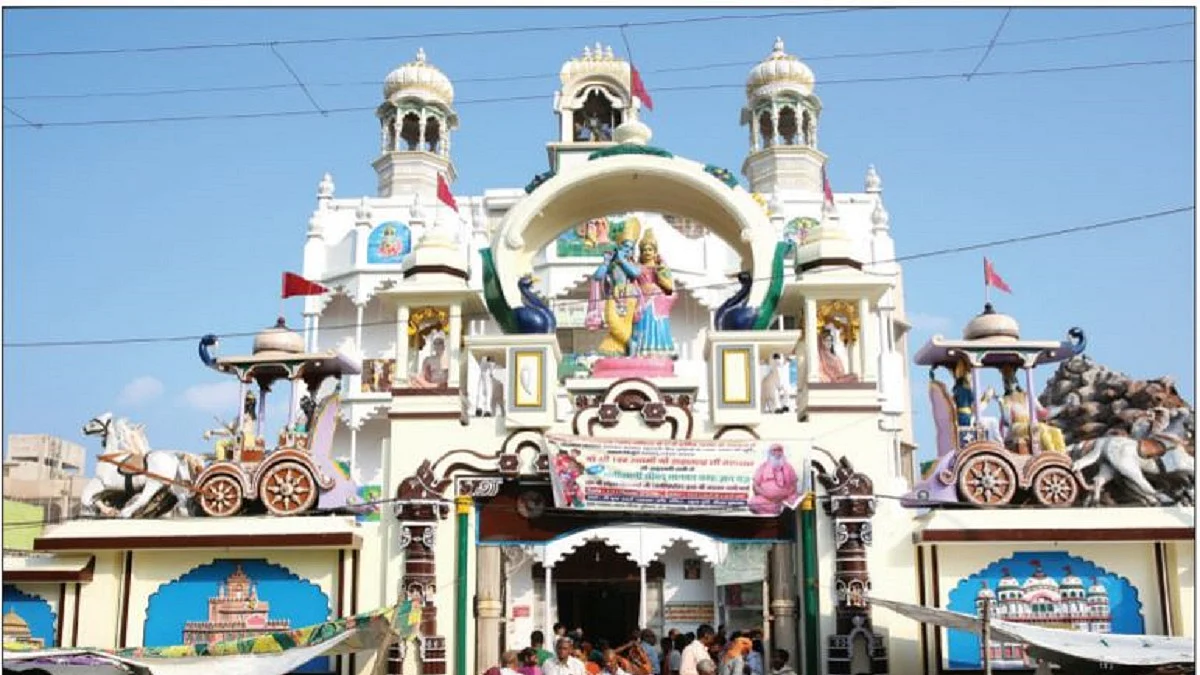What is problematic about meat, liquor ban in Mathura
The rationale of bans on books, liquor, meat or performances is seldom made clear, which leaves people to suspect that the motive can only be political or electoral

Sale of meat and liquor is prohibited in several ‘holy’ places including Haridwar, Rishikesh, Vrindavan, Barsana, Ayodhya, Chitrakoot, Deoband, Dewa Sharif and Misrikh-Naimisharanya. UP chief minister has now announced that Mathura, the Krishna Janmabhoomi, is being added to the list. But while in most places the ban extends to a certain distance from the holy spots, temples etc. (250 metres in Varanasi), in Mathura the ban order will extend to the entire municipal area.
The Supreme Court had upheld the ban on even sale of eggs in Rishikesh and accepted the state government’s plea that it was necessary to keep Rishikesh clean. By the same logic, the ban should extend to Varanasi, the holiest of the holy cities, but the Uttar Pradesh Government has not yet moved in that direction.
Whatever be the justification, what is problematic, say observers, is the complete lack of transparency. Why was the ban not imposed earlier during Yogi Adityanath’s tenure and why is it being announced just ahead of the assembly election? Is there any study or survey done to indicate how dirty and polluted Mathura is and the kind of problems caused by the sale of meat and liquor to the inhabitants, visitors and devotees? Is there a survey of how many meat and liquor sellers would be affected and how much revenue they were yielding to the state? If there is such a survey on livelihood and displacement, the state government has not yet shared it with the people.
The rationale of bans on books, liquor, meat or performances is seldom made clear, which leaves people to suspect that the motive can only be political or electoral. If not regulated, sale of meat and liquor etc. can lead to crime, law and order problems or to poor sanitation. But there is no data or empirical study to suggest that the trades were not regulated in Mathura or that they had given rise to a spurt in crime or law and order issues.
No cost-benefit analysis seems to have been done. Will the ban attract more devotees to Mathura? Will the hospitality sector suffer with visitors paying a day-visit and choosing to stay outside Mathura for overnight stays? Will hotels in Mathura lose out?
By all available accounts, no consultation has been held with such stakeholders either and no opportunity given to them. They were not informed of problems, if any, that their trade was causing; and they apparently have not been given any opportunity to suggest ways the problems, if any, could be sorted out.
As prohibition in Gujarat as well as Bihar have shown, ban on sale leads to a flourishing black market. Writing in The Wire, retired IPS officer N.C . Asthana pointed out that while 60% of the Hindus happen to be non-vegetarian, it will not only become far more expensive for them to travel out of the municipal limit to buy meat but it would also encourage vigilante groups. Anybody can then be stopped by these groups and if they are found to be carrying meat, they could be beaten up or forced to part with hefty sums of money.
But not surprisingly, the constituency Yogi Adityanath is addressing is ecstatic. Vishnupriya Devi, who runs a dance academy in Vrindavan and has been a member of the Rashtriya Swayamsevak Sangh (RSS) for the past 35 years, is giddy with joy. People of Mathura and Vrindavan, she informs, do not even use onion or garlic as ingredients while cooking.
“It’s only these outsiders, who come from Bengal, Bihar and the military officers in Mathura, who consume meat and alcohol,” she says dismissively. Consuming meat or alcohol in the military mess or at home, she suggests, is acceptable.
Chandra Bhan Keshwani, a retired government employee, justifies the ban by saying that while people would earlier ‘drink in devotion’, now they drink for no good reason at all. If you are a devotee, he suggests, you could drink alcohol. “Non veg food is anyway prohibited by our shastras which prescribe swattik bhojan only,” he adds righteously.
But didn’t Hindu gods also consume meat and alcohol? Ritesh Saxena, a sales manager from Mathura, is outraged. “This does not happen in our Hindu dharma,” he says stiffly.
Devi takes a more diplomatic stand. “We can’t change the world, but we can change the place around us. If we don’t regulate, these sher will become savasher.” She adds more belligerently, “In Vrindavan, if someone tries to sell eggs, uska thela hi ludhak dete hain. There are no alcohol shops here for long kilometres, and if someone opens one, the people will shut it down immediately.” Maharaj Ji seems to be knowing what he is doing.
Follow us on: Facebook, Twitter, Google News, Instagram
Join our official telegram channel (@nationalherald) and stay updated with the latest headlines
